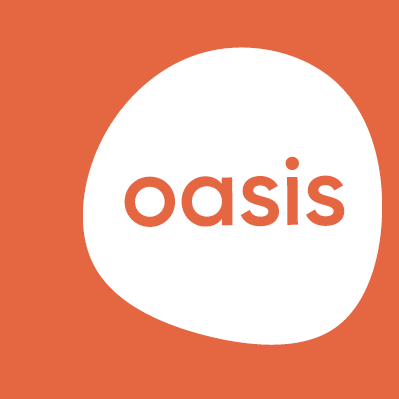Will the flexibility genie be forced back into the bottle?
In September 2021, with 18 months experience of working under pandemic conditions, research suggested there had been a real shift of focus in the workplace: from hours spent to outputs delivered. Perhaps for the first time – forced into new ways of working - managers valued the outputs produced by staff more highly than monitoring the number of hours expended working. Enforced working from home finally allowed people to demonstrate that rather than sitting about watching daytime television with a cup of coffee, they could be trusted to get the job done. This was confirmed in the Benchmark Report 2021 from the charity Working Families, which reported that 86% of employers felt that line managers in their organisations had shifted to focus more on outputs, rather than the number of hours worked, thanks to changing working patterns over the pandemic. Similarly, head of policy at the Chartered Management Institute (CMI), Daisy Hooper, reported that she had also seen a change in focus from line managers and that the last year had shown a much more flexible approach to work was possible, with many employees and managers preferring a hybrid environment.
“If implemented well, hybrid working can improve wellbeing, help with attracting and retaining employees and promote inclusion”
Daisy Hooper, Head of Policy, Chartered Management Institute
And at the CIPD there was agreement that a focus on outputs rather than hours could support both flexibility and greater inclusion for workers. Claire McCartney, senior policy adviser for resourcing and inclusion said, “It is good for inclusion and fostering a diverse workforce and can have benefits for wellbeing and performance.”
Flexible working has created both opportunities and tensions. Hybrid approaches and flexible hours that allow employees to organise their work to suit their personal circumstances can have a positive impact on individual wellbeing – for example, enabling people to play to their strengths, such as working at times of day when they are most energised or creative; and those with caring responsibilities can adjust working times to suit those requirements – reducing stress and leading to a greater sense of wellbeing in the process. However, whilst this may be true for some people, for others, getting together with colleagues for social connection, sharing ideas and working together is an important aspect of maintaining their wellbeing. It is challenging to balance differing individual needs, and this becomes more complex as the needs of the wider organisation come into play. One approach is to consider the type of work: for those whose work mainly requires focus then flexibility of hours and location is less of an issue – in fact, people often report being more productive when allowed to get on with projects away from the distractions of an office. But if part of a role requires creative collaboration with colleagues, whether in the same function or across different departments, people need to be in a shared space for at least some of the time.
The complexity of managing different needs and preferences makes the role of managers more challenging than in pre-pandemic times. And what is happening to the culture of organisations? How much is being eroded as the old norms of “how things are done around here” are diluted, or not experienced enough by new recruits for the culture to continue?
How much pressure is there on the flexibility genie to go back in the bottle?
There is certainly pressure from some prominent people: Lord Sugar was quick to slam the working from home culture when PricewaterhouseCoopers announced it was giving its accountants Friday afternoons off from June until August after a successful pilot scheme last summer. Does he really believe it makes people lazy? Meanwhile Prime Minister, Boris Johnson is urging organisations to bring people back into the office, despite recognising many will disagree with his perspective that it would “help to drive up productivity, it will get our city centres moving in the weekdays and it will be good for mass transit. There will be lots of people who disagree with me, but I believe people are more productive, more energetic, more full of ideas, when they are surrounded by other people,” he said. Whilst it may create more economic activity within towns and cities, it is surely clear now that not everyone needs to be in the workplace every day.
Many organisations are embracing the continuation of a flexible approach: in 2021 Deloitte announced they would continue to allow their 20,000 employees to choose when, where and how they work. From April 2022 it was confirmed by Google CEO, Sundar Pichai that some people are able to completely work remotely, whilst the vast majority are expected to be in the office around three days per week for collaboration, brainstorming sessions, meetings with clients and vendors, and building community. The Bank of England currently only requires employees to be in the office one day a week.
As our research, Is the Future Flexible? - Leading and Managing in the New World of Work found:
“Trying to put the flexibility genie back in the bottle is likely to lead to dissent and dissatisfaction.”
It goes far beyond dissent and dissatisfaction: employees are voting with their feet. Organisations across the world are struggling to retain their staff, and a pay rise is not enough to tip the balance. In fact, if that’s all that is on offer, it is likely to cement the decision to leave. A pay rise or a bonus feels transactional. Employees in 2022 are looking for more from organisations and their managers: empathy and understanding, a sense of purpose in their work and meaningful connections (not necessarily always in-person). Employees are seeking a more relational experience at work, which means that managers, as the frontline point of contact, must develop the right capabilities. Many are looking for training and support so they can deliver a more fulfilling employee experience through flexible working.
This is echoed by future of work expert, Professor Lynda Gratton, who says (of flexible working), “I’ve seen a lot of fads come and go – I hope this won’t be one.” Talking of the approach in her own company, Professor Gratton highlights the importance of co-creating with employees and putting more emphasis on managers, who are being asked to design the way people work, not just delegate tasks and manage outcomes.
What are the skills and qualities that managers need to develop in order to retain key staff?
· Trust – agreeing outputs and then allowing staff to deliver in a way that works for them
· Curiosity - listening and asking questions to find out what is important to their staff and then supporting them to shape the content of their work and their work life in alignment with that
· Empathy – listen first to understand what your employee is experiencing and feeling, and if their experience is beyond what you find you can relate to, acknowledge that with honesty “I can’t imagine how that must be for you” … before asking what help they need
· Responsiveness – taking action in timely manner, whether in response to a complaint or a question. If this means taking feedback or questions to leadership it is important to also follow up and hold them accountable for a response
· Vulnerability – a willingness to say, “I don’t know” or “I’ve made a mistake” and to explore potential ways forward together
· Valuing contribution – saying thank you and giving feedback to ensure people know they are recognised and valued for their work
· Flexibility and co-creating – recognising there’s no “one size fits all” and exploring with each individual their needs and preferences and how they will work
· Openness - to continuous learning and evolution – checking in regularly to explore whether current ways of working are still working
Flexibility is the key: managers need a range of skills and a flexible approach to co-create an effective approach to flexible working – one that works for individuals, teams and the wider organisation. That’s what will enable the flexibility genie to stay out at large.
Jane Bytheway
Learn more about the Oasis Raw Network. Contact us for more information on how we can help embed employee wellbeing through our oasis counselling services.


